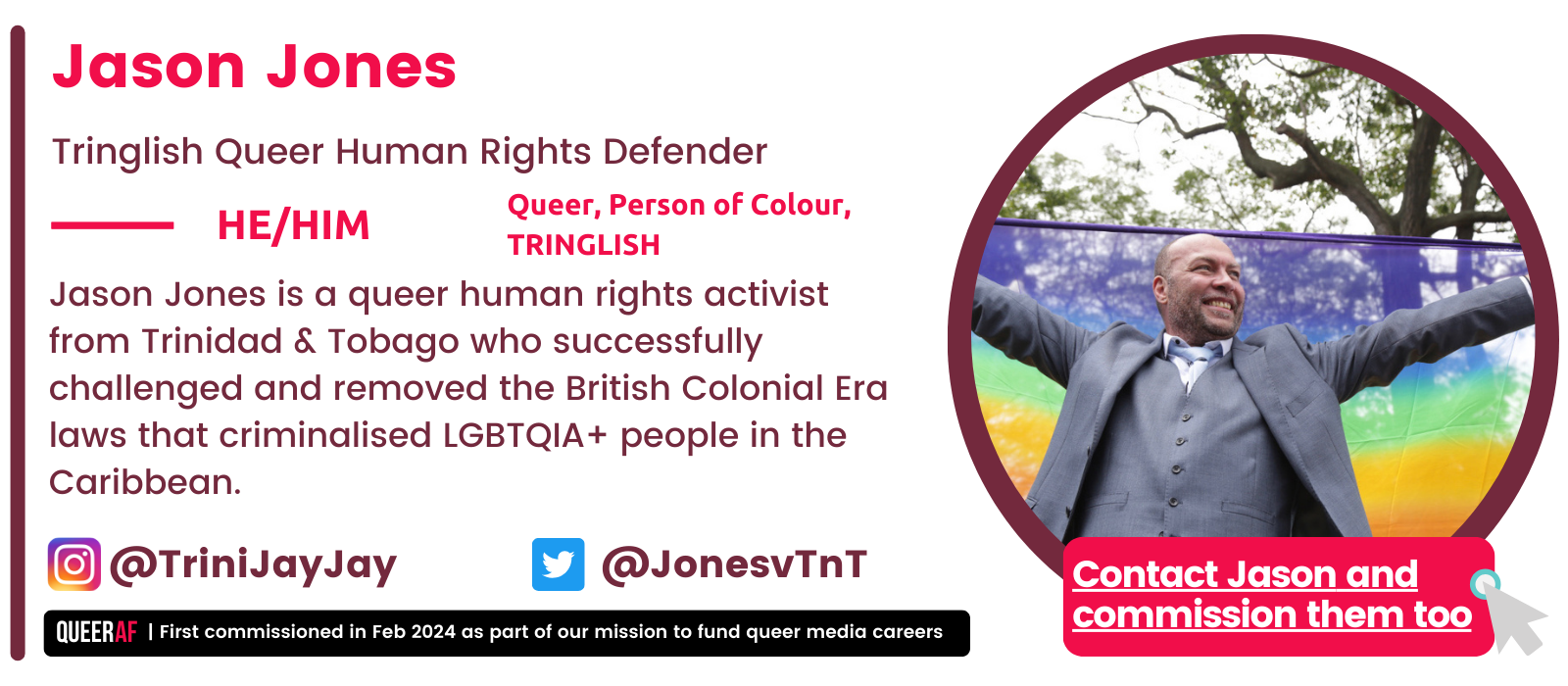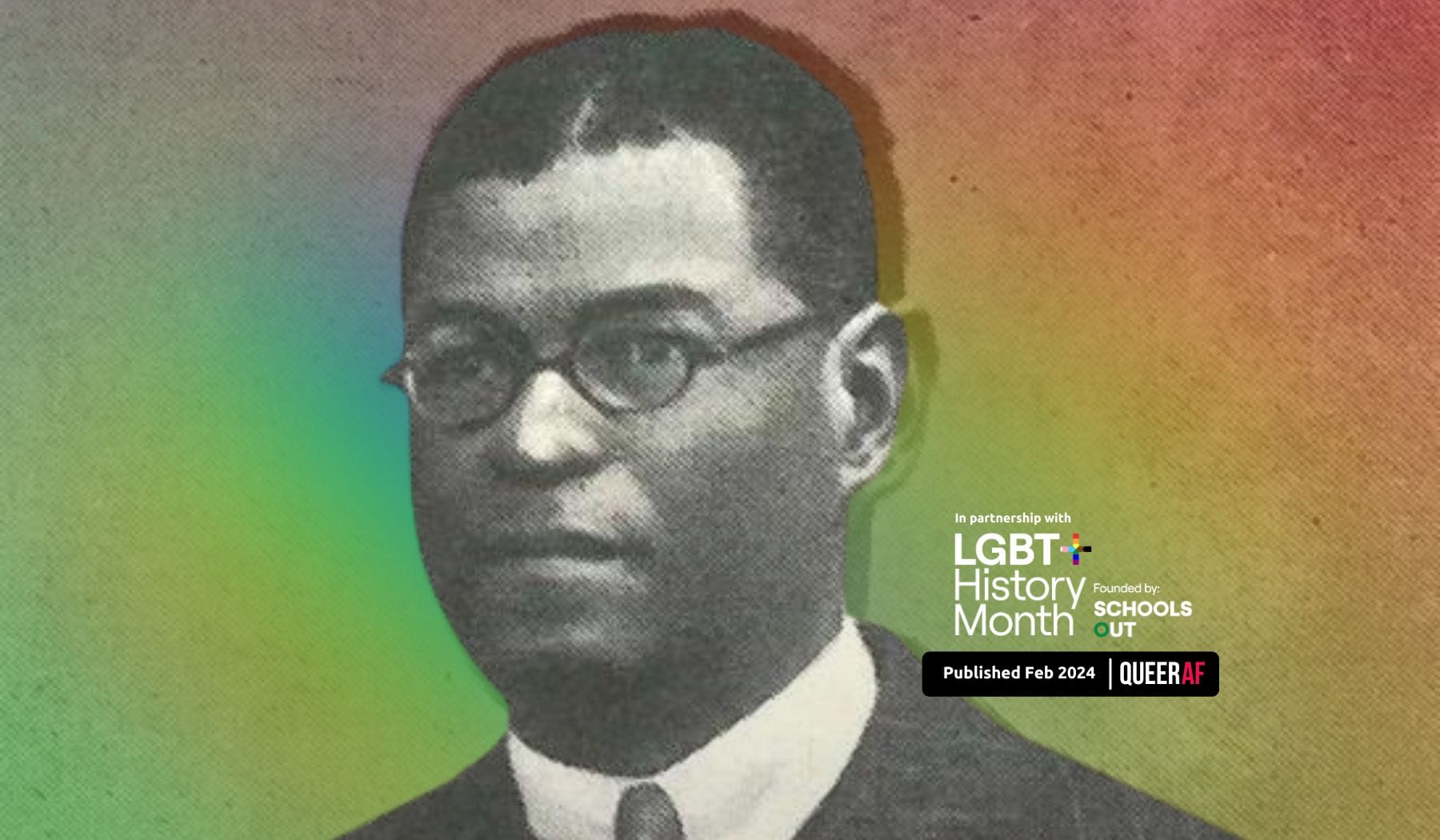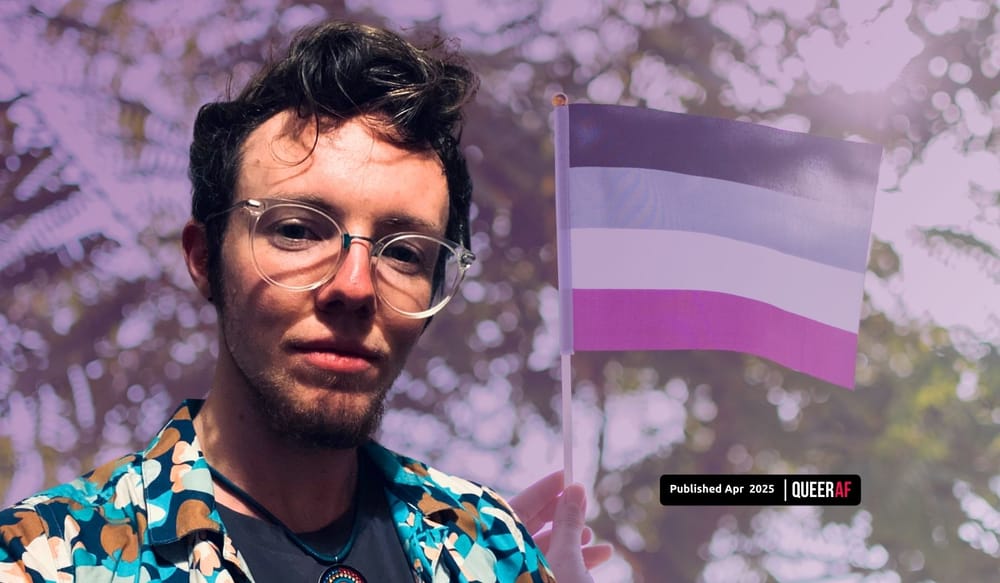This Queer Gaze is in partnership with LGBT+ History Month in the first of a series based on their ‘Under The Scope’ resources for schools about LGBT+ people who made history in the field of medicine.

When I was growing up in the 1970s on the little Caribbean island of Trinidad, being mixed race and queer was a very big no-no in society.
I suffered incredibly severe homophobic bullying and isolation from a very young age.
Most queer coded men in the public eye back then were white effeminate gay men like John Inman in Are You Being Served? or Kenneth Williams in the Carry On films.
I had to forge my own path of finding my identity and my own place in the world, which is what led me to becoming a human rights activist when I moved to London in 1985 and was faced with Margaret Thatcher’s homophobic ‘Section 28’ legislation.
So as LGBT+ History Month came around, this year I decided to learn about another queer Black Caribbean man that very few of us know anything about: Dr Cecil Belfield Clarke, who was born on the island of Barbados in 1894.
Although not much is known of his early life, we know he was educated at the best schools of Barbados, eventually winning a scholarship to leave and study Natural Sciences at the prestigious St Catherine’s College of Cambridge University in 1914.
Studying during the turmoil of World War I in Europe, he eventually completed his medical studies at UCL and opened his own medical practice in Elephant and Castle in 1921, some three decades before the Windrush generation.
He also became heavily involved in the fight for racial equality during the 1930s and was a founding member of the newly formed Pan-African movement based in London: the League of Coloured Peoples.
Dr Clarke hired his partner Pat Walter as his assistant, and they would work and live together for the rest of their lives (over 40 years!), setting up a beautiful home in Barnet and running the medical practice together.
Dr Clarke would be immortalised in medical history by his creation of ‘Clark’s rule’ (sic) which is still in use in medicine today to accurately calculate the correct dose of medicine to be administered to children aged 2-17.
As an activist myself who fought for the removal of the British Colonial era buggery laws that criminalised people like me and Dr Belfield Clarke in the Caribbean, I think there are many lessons we all can glean from the life of this remarkable queer Black Caribbean man.
His resilience and sense of community is evident in his story, and can inspire us to stay focused on the fight for our equality.
Dr Clarke opened his home to all people to come and share ideas and experiences. His GP practice also became a central part of the community of Elephant and Castle.
The LGBTQIA+ community can feel fractious at times, but he shows us how powerful united community engagement can be in moving forward equality for all.

Get the Queer Gaze in your inbox each week with our free weekly newsletter or pitch to write an edition for us now. This edition was created in collaboration with LGBT+ History Month. This year the theme is 'Under the Scope', a look at LGBT+ heroes in the field of medicine. Each article in the series is created using the Schools Out resources on this year's five official history heroes.
QueerAF and here to change the media
Queer lives are inherently political.
Clampdowns by the Art Council on political art, the social media platform formerly known as Twitter and now Meta's Instagram and Threads on news and politics point to a bigger picture.
Clearly, protecting profits are the only thing that’s important to politicians, media and now some of the UK's most respected institutions.
We're a not-for-profit exactly for this reason. We raise funds so we can reinvest it into content that we know counts - not for clicks.
Behind the scenes of this weekly newsletter, we're also working across the media as an advocacy group to change the way the newsroom looks, and acts - to make the country better for all LGBTQIA+ people.
In the words of respected Trans+ journalist Jess O'Thomson, QueerAF is:
"One of the best publications doing queer journalism I know of"
If you can, consider supporting us. You can join the community of QueerAF members from just £4 a month.











